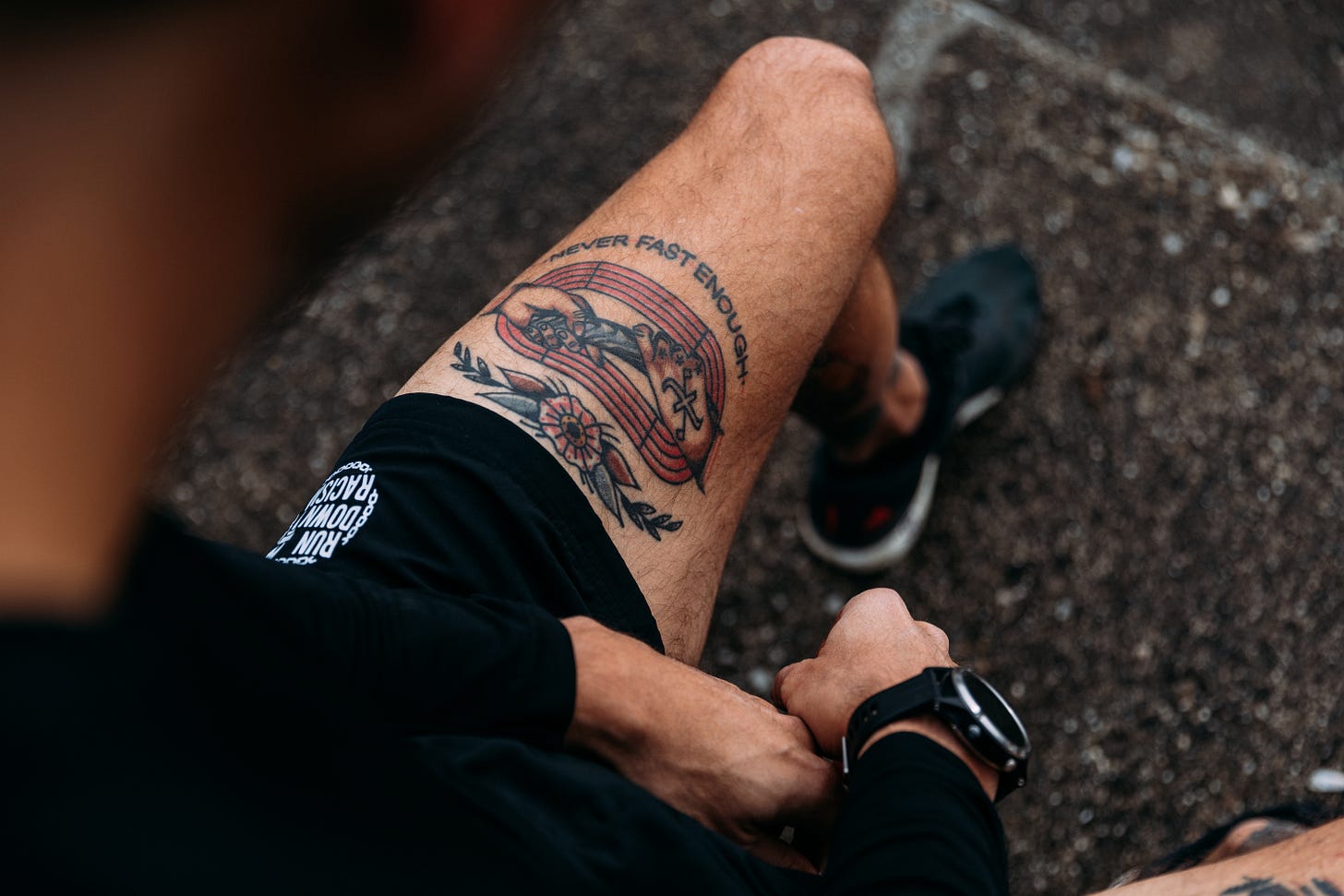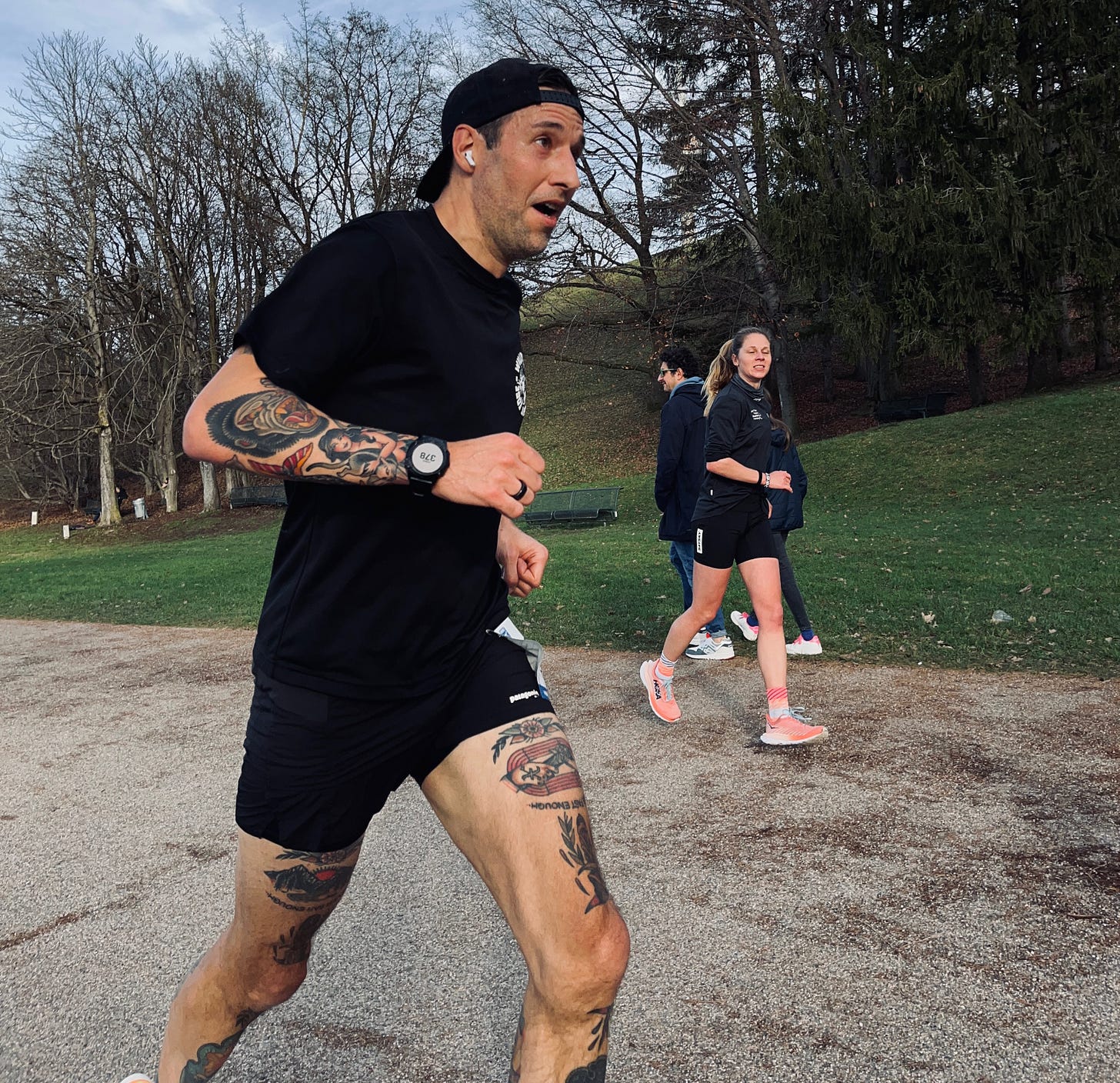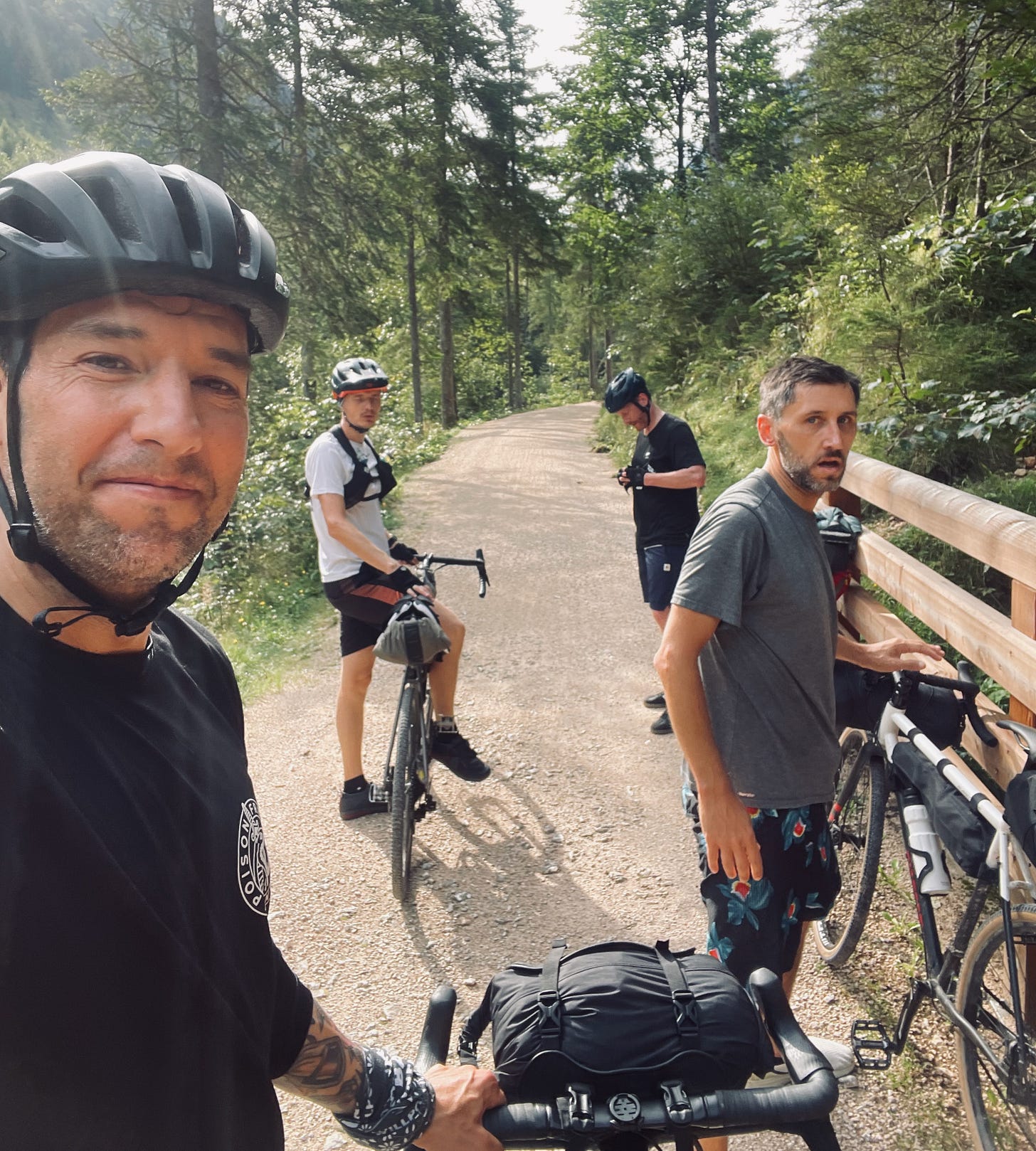Off-Season is probably not the best time to do a professional performance test. Well, I was bored, and I was lonely (without running). Maybe that’s why I fell into this trap. 2 weeks ago, I went to the sports medicine campus of the TU (Technical University) Munich and let them do a full checkup of my athletic health and fitness.
“You are healthy, come back when you’re sick”
The good news is that I am apparently super healthy. Blood levels, resting and stress ECG, cardiac ultrasound, BMI, body fat, blood pressure… All of this was either great or superb. Hallelujah.
Spiro-what?
Rather shocking were the results of my spiroergometry (short: spiro), though. In case you don’t know what that is (lucky you), let me put it in simple words: A spiro is a special test, often used in sports medicine, that checks how well your heart and lungs work when you're exercising. It measures things like how much oxygen you use, how much carbon dioxide you produce, and how your heart responds during exercise. Even simpler put: It gives you a clear feedback how fit you are.
In practical terms, they gear you up like you’re about to climb K2 (yes, including an oxygen mask), put you on a treadmill, continuously increase the speed, and let you run until you collapse.
I can hear 1/3 of you now saying: “Why the hell do you do this?”
Numbers as friends
Well, I do love numbers. I love running more, but numbers are awesome, too. They are my friends. They are reliable and never lie. And they’re there for me whenever I can’t run, which is basically 90% of the day. Lately even less, because of my forcefully imposed off-season.
VO2max killed my vibe
Now back to my spiro results. They were the worst I ever measured since I started running. I was terrified!
It is worth mentioning that the sports doctor, who I discussed the results with, wasn’t concerned at all. She repeatedly insisted on my great fitness and perfect health, and explained to me multiple times that I can continue pursuing my ambitious athletic goals without any doubts.
My reaction?
In one ear and out the other.
I only had the spiro results in my head. I won’t bore you with all the details, but there is one most notable measurement value, you probably heard of: the VO2max.
Modern sport watches try to calculate your VO2max based on simple data like heart rate and pace. This is not very precise, but somehow gives you a hint whether you are making progress in training or not. A spiro, in comparison, delivers a scientifically accurate result.
Well, my VO2max dropped double-digit points compared to my last spiro in 2019. Yes, that’s right. Not 3 points, not 5 points, not 9 points, but… even more.
While there are numerous possible reasons to explain this self-proclaimed total failure of fitness (*find them below, if you’re interested) the real question is the following:
Why did this bother me so much?
Or even:
Why did this bother me at all?
I really pored over this for a while.
The numbers game
My rumination brought me back all the way to the reasons why I started running 10 years ago. I have never participated in competitive sports, except for the Bundesjugendspiele (Federal Youth Games), which I loved, by the way. While I got constant feedback for my intellectual, social and artistic skills all my life, I hardly ever got any acknowledgement for my physical abilities. I am not speaking of your parents telling you how fabulous you ride your bike or swim from one lakeside to the other. What I am talking about is an objective, quantifiable, reliable and comparable feedback. Again: numbers.
I started running at the age of 34 and one of the most exciting, but also motivating, things for me were race results. The feedback and the numbers I had been missing all my life. Sure, I mostly enjoyed and still enjoy running for running’s sake. After all, I could have picked any other sports, if it was just for measuring up to my own expectations. Nevertheless, the numbers game had a massive impact on my self-perception and has become and integral part of my running life.
You got me all wrong
Allow me to clarify some potential misunderstandings.
First, we are not speaking of absolute numbers here. While a 10k race result of 45 minutes was the greatest thing I could think of a couple of years ago, a half-marathon in 1:24h in 2023 gave me the same feeling of accomplishment. It is not that “one result” I am longing for. It does not even have to be a race. It can be anything from a perfectly executed tempo run, to a circuit around the Starnberger See. As long as it is measurable and comparable.
Second, I neither expect to be equally fit all year long. I learned that in 2021, when I started working with my coach, Karim Ramadan. Nor do I believe that my performance curve will only go up all the time. I am totally aware that athletic abilities have to be always put into context. This context can be my current life situation, injury and injury comeback, which concrete running goals I am chasing after, and surely also aging.
Third, when I am writing things like the above, I am not generalizing. I am speaking of myself and only myself. I don’t believe or even care that any of this applies to every or any runner out there. It’s an honest and unadorned insight into my inner life.
However, if you have similar feelings regarding the numbers game, or think that this is all complete and utter BS, I would love to hear about it.
Back to the here and now
My off-season is practically over. And you know what? Running feels absolutely awesome. And despite my spiro results, I don’t feel unfit at all.
So what I am learning from this is that there might be other relevant measurement values for my fitness, than just hard-hitting numbers. Maybe not as objective, not as precise and not as comparable, but still highly valuable. For example, how I feel.
With this Das Z Letter, I am closing this chapter now and look forward to an exciting new chapter of my running life.
(*) The Nerd Section
Possible reasons for my considerable VO2max drop:
Weight Gains - VO2max is measured in milliliters of oxygen consumed in a minute per kilogram of body weight. Thus, a higher weight automatically lowers your VO2max, although you are basically equally fit. In 2019, I weighed 4 kg less than this year, probably because of my lengthy injury.
Different test protocols - Now it gets really nerdy. The lab in which I did my spiro in 2019 used a treadmill protocol which was originally for lactate tests, not for spiros. They did this because we tried to test both, breathing gas and blood lactate, in one session. At a lactate test, you increase speed every 3 minutes. For a spiro every 30 seconds. This discrepancy distorted the results and made them basically incomparable with each other. At least that’s how the senior physician at the sports clinic explained it to me.
Covid-19 - Between my last sports diagnostic in 2019 and the current one, I went through a more or less serious Covid-19 infection. Even 1.5 years afterward, my heart rate is still a bit higher than it used to be at comparable outputs. The spiro also showed that my breathing capacity and efficiency (measured in “V'emax”) has decreased notably. From what I know, there could be various reasons for this, but I still want to add Covid-19 to the list, simply because it was such an incisive impact on my health.
Off-Season - Compared to my last spiro in 2019 where I was in absolute peak shape, I now picked an off-season phase of extremely low training volumes like 20 km of running per week. I had also just run a demanding A-race one week before the spiro, which most likely had an impact on the results, too.
Hardly any VO2max specific training - I’ve been mostly training for ultramarathons for the last 2 years. Although almost every workout can contribute to your VO2max, there are some very specific ones, with a notably higher effect. Mostly high intensity interval sessions at threshold pace. I didn’t do any of these for months.
Injury & Injury return - I have been busy with being injured and injury comeback for most of 2023. In addition to a 3-month-long break with no running at all, my focus was exclusively on recovery.
Age - Inconvenient truth, but at 44 I must consider that the performance curve is not only going up all the time anymore. From the age of 40 your VO2max usually starts decreasing by 10% per decade. As a running late-bloomer, I do have a bit of an advantage, though. There are many fields of development I haven’t exhausted yet. But the overall curve will eventually go down instead of up.
Dear training nerds! Comments about my writings are always the “Salz in der Suppe” as we Germans say. But in this particular case I am extra curious to hear about your experiences, opinions and thoughts on the causa VO2max.
Everything not Running
Just a quick note that last week’s Burger Club Bike Trip was absolutely wonderful! We rode many more kilometers, did much more climbing as planned and got pretty much grilled by the heat, but I enjoyed every minute of it.
While we were crossing the south of Germany, the biggest event in ultrarunning took place in Chamonix. It both felt weird and pleasing not to follow it closely. If I had been at home, I would have been glued to the TV for hours.
On the bike, the only important updates that I checked every once in a while came from a What’s App group Christian Bruneß had installed for his own UTMB race. The group-chat was packed with his friends and family, and everyone was very excited about his big race. We all sent him words of motivation and occasional photos to support him. He later one thanked us and confessed that, right next to his official on-site supporter Paul, the What’s App group-chat was the main reason he didn’t quit.
Christian’s UTMB race, his struggle, and even more so, his retrospective reflections all showcased the most beautiful side of our sport to me. You can find out more about his once-in-a-lifetime racing experience in his “Vom Laufen” podcast:
Ha. This week’s “Everything not running” secretly turned out to be about running, anyway. Sorry, not sorry.









Am an avid follower of Das Z letter and even Willpower and love reading your weekly posts. This one today however has to be my favourite one so far, most probably because I can totally relate as I’m battling to get my VO2max back up to where it was two years ago...
One good thing though is that I’m also getting older and I’m learning that I’m better off being #dataeducated rather than being #datadriven